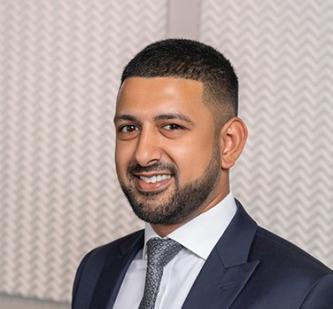
The path to Director of Children's Services - Insights from the roundtable with Sally Rowe

Tile Hill hosted a Leadership Development Roundtable for Assistant Directors (ADs) aspiring to become Director of Children's Services (DCS’s), featuring insights from Sally Rowe, former Executive Director of Children’s Services at Walsall Metropolitan Borough Council. The roundtable, led by Yas Din, Chris Barrow, and Helen Alwell from Tile Hill, focused on crucial aspects for aspiring DCSs; including the diverse paths into the role, adopting a corporate mindset and explored the complexities of navigating internal and external partnerships.
Diverse routes into DCS leadership
The session looked at how the journey to becoming a Director of Children’s Services (DCS) can be different, with candidates coming from a wide range of professional backgrounds such as social care, education, and commissioning, each bringing their own unique insights and experiences.
Due to this range of backgrounds, Sally emphasised the critical role of leadership development in this process, particularly highlighting the value of the UPON leadership course. Drawing on her rich experience, which included time with Ofsted as Her Majesty’s Inspector (HMI) and as a Director of Children's Services within two Local Authorities, she reflected how the course had a significant impact on her own personal and professional growth.
The UPON course was praised for its comprehensive leadership training and for fostering a network of peers and mentors, offering vital support and guidance. Sally credits the course with not only enhancing her leadership skills but also establishing lasting connections that have been beneficial throughout her career and into retirement. She implored those aspiring to become or newly appointed DCSs, to participate in the UPON course to bolster their leadership skills and cultivate a supportive professional network.
Adopting a corporate mindset
Transitioning to a Director of Children's Services involves adopting a broader corporate perspective beyond Children's Services. Sally highlighted the importance of understanding and engaging with council-wide issues, from bin collection to airport management (drawing on her time in Luton) and recognised how all these potentially disparate services can impact Children's Services. What Sally outlined was the need for a DCS to identify the interconnectedness of the various council services and leverage these relationships to support broader objectives, such as public health goals.
Sally described the critical role of strategic savvy, and adaptable leadership in navigating the complexities of the role, especially in the face of financial challenges. She stressed that by fostering a more integrated approach to service delivery, DCSs can significantly contribute to the wellbeing of the community and achieve greater positive outcomes for children and young people. This panoramic viewpoint facilitates greater effectiveness, both in managing resources and navigating the landscape of local government operations.
Complexities and challenges of working with internal and external partners.
Effective leadership as a Director of Children's Services (DCS) demands strong internal and external collaboration. Internally, integrating key departments like finance and HR into the leadership team is crucial for the seamless operation and success of Children's Services. Fostering relationships with elected members, including the Council Leader and the Children's Services portfolio holder, is key to effectively working within the political landscape and championing the needs of children and families. Sally talked about the need for strategic thinking, adept communication, and negotiation skills in managing stakeholders, aiming to foster cooperation and advance the cause of Children's Services.
For external partnerships, Sally emphasised the need to ensure that Children's Services are well-represented in discussions with all partners including health, education, and Police together with the voluntary sector. Proactive participation in strategic meetings is vital for influencing policies and initiatives that impact children and young people. Sally shared her successful strategy of integrating Children's Services into health care partnerships and advocating for children's interests in broader health and social care discussions.
With the educational landscape evolving, especially with the shift towards academisation, Sally stressed the importance of DCSs engaging with schools to maintain Children's Services as a priority. Building connections, getting out to two or three schools a month, showing genuine interest in educational outcomes, and leveraging forums for effective communication with headteachers, are all part of a crucial strategy.
Finally, Sally touched on the dual nature of the relationship with the Department for Education (DfE), one that involves both challenge and support. Drawing from her experience as both a DCS and a DfE Advisor, she highlighted the wealth of knowledge and support that advisors, often former DCSs themselves, can offer. Utilising these relationships can provide critical assistance in negotiating the complexities of the role.
Conclusion
Sally’s expertise and experience provided a comprehensive overview for ADs on the many considerations and preparations necessary for progressing to the DCS role. Through her unique perspective, participants gained a clearer understanding of the nature of the position, the strategic mindset required, and the significance of nurturing robust partnerships. Aspiring to become a DCS is an ambition that calls for dedication, a broad skill set, and the capacity to lead with vision and empathy. It is a role that allows a greater positive impact on children and young people’s lives and ensure they have the best possible opportunities.
As executive recruiters, it is our job at Tile Hill to work with you in partnership, to truly understand you as an individual - your career ambitions, your doubts, and your drivers. To ask the important questions - if not you, then who? Local government Children’s Services are facing a cliff edge of senior leadership capacity, and it is the responsibility of everyone connected to the sector, including us, to encourage and develop the leaders of the future.
Stay in touch
We would welcome a conversation with you to discuss some of these points in more detail. We also plan to host other sessions during the year, and we invite you to stay engaged with us as we explore further topics and strategies from industry experts sharing their insights.
To find out more please contact chris.barrow@tile-hill.co.uk, helen.alwell@tile-hill.co.uk, or yas.din@tile-hill.co.uk
Did you find this useful or would like to find out about similar events? If so, please remember to follow Tile Hill on LinkedIn for more news, community, and support.
Similar blogs
Sign up to newsletter
By submitting your details you agree to our T&Cs




